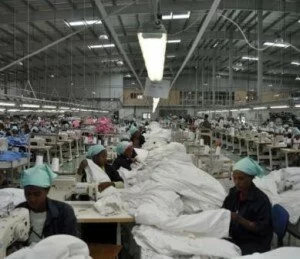
Businesses who form part of clusters in the textile sector stand to benefit from a R200 million fund.
Business owners in the clothing and textile industry are set to benefit from a new R200 million grant fund, launched by the Department of Trade and Industry (DTI) last month.
The fund forms part of a five-year development plan, also launched last month, aimed at improving competitiveness in the local industry, .
Heinrich Schultz, head of national economic cluster Southern African Sustainable Textile and Apparel Cluster (Sastac), says a database will soon be launched where both formal and informal enterprises can register to become part of their applicable regional clusters.
With the DTI’s support, Schultz heads up a team of experienced industry professionals comprising senior manufacturers and product quality assurers who will assist in providing both financial and non-financial support to the industry.
This initiative is aimed at clusters only and not individual business owners and it is hoped that between 500 to 600 new micro enterprises will be created.
“The central website for regional support programmes will be operational in three months’ time and it will be used to identify all businesses such as existing shops, factories and trading centres that need to be accommodated when we start rolling out programmes by next year ,” he says.
Schultz adds that Sastac was also targeting unregistered businesses to help formalise such businesses and improve their chances of benefitting from the fund.
“Many of these businesses may be based in environments where it’s not feasible to get health or safety certifications.
We need these businesses to register on the website so we can assist with these processes,” says Schultz.
Businesses that form part of regional clusters will gain support at shop-level, while the national cluster will work on developing import and export strategies for overseas trade.
Clusters will have access to skills development initiatives for employees, mentorship support and funds that will be used to buy new quality assurance technology.
Sidwell Medupe, department spokesperson, says the initiative will see dozens of design craft, shoe and leather apparel-makers gain practical skills in quality making, packaging, labeling and selling of goods so as to meet international quality standards.
“Business owners will also be introduced to compliance criteria and the logistics of producing for local or international clients,” says Medupe.
To join a regional cluster recognised by the programme, a business only needs to be operational.
Members of the business must be dedicated to creating employment and must have a clear business plan.
“We will monitor each and every development with each business as the programme continues,” Schultz says.
- Visit www.thedti.gov.za for more information.
